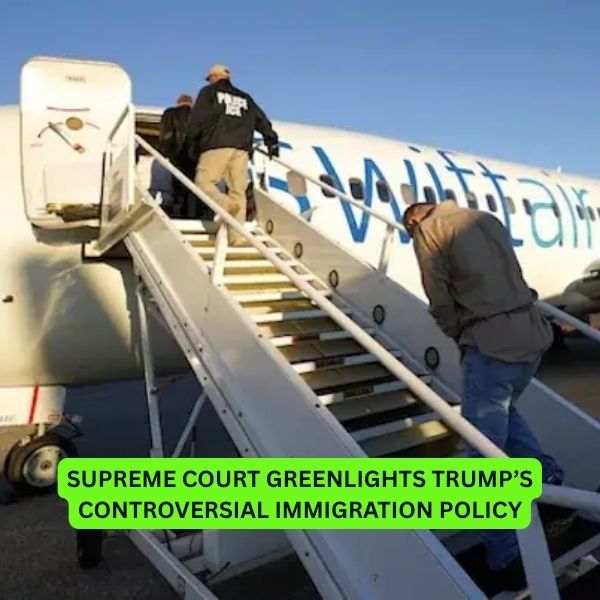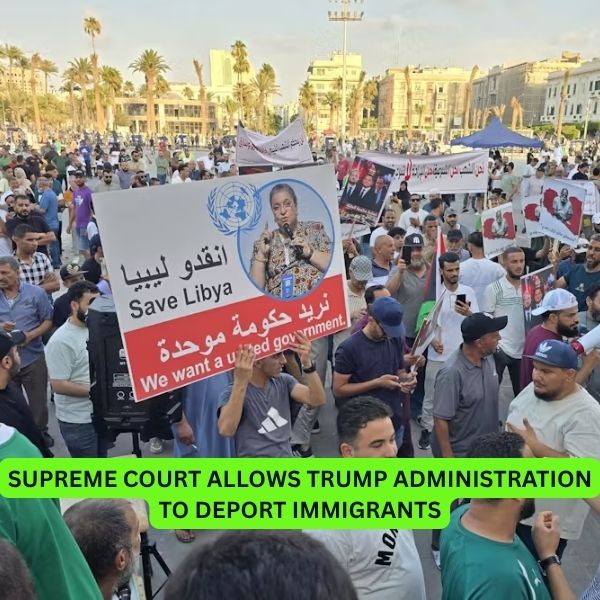The Supreme Court on Monday handed a major win to the Trump administration, ruling 6–3 to allow the expedited deportation of certain immigrants to countries they have no ties to — including dangerous third countries such as South Sudan and Libya.
The ruling lifts an earlier injunction from a Massachusetts federal court that required the government to give deportees time to contest transfers to countries not of their origin, especially where deportation could pose serious safety risks.
What the Ruling Means
This Article Includes
-
The majority conservative justices sided with the Trump administration, giving it emergency relief from U.S. District Judge Brian Murphy’s order that protected immigrants from being sent to third countries without adequate notice or due process.
-
The three liberal justices — Sonia Sotomayor, Elena Kagan, and Ketanji Brown Jackson — strongly dissented, calling the move a “gross abuse” of judicial discretion.
-
Justice Sotomayor wrote that the administration has “repeatedly defied” the lower court order and warned that the ruling “further erodes respect for courts and for the rule of law.”
DHS Reaction
Tricia McLaughlin, assistant secretary at the Department of Homeland Security (DHS), celebrated the ruling on social media with the phrase:
“Fire up the deportation planes.”
She added that the ruling prevents “activist judges” from blocking the removal of individuals she described as “convicted murderers, child rapists and drug traffickers,” even when their countries of origin won’t accept them.
Judge Murphy Pushes Back
Despite the high court’s emergency stay, Judge Murphy responded late Monday insisting that his original order remains in “full force and effect.” His May ruling required DHS to give deportees:
-
10 days to express fear of removal to a third country, and
-
15 additional days to file for reopening immigration proceedings.
Murphy had previously threatened contempt charges against DHS officials after they tried to deport seven men to South Sudan — a country labeled “Do Not Travel” by the State Department due to war, kidnappings, and lawlessness. None of the men are from South Sudan.
Where the Migrants Are Now
Those seven migrants, targeted for third-country deportation, were rerouted to a U.S. military base in Djibouti and are reportedly being held there in converted shipping containers, awaiting a final decision.
What’s Next?
While the Supreme Court’s emergency order allows deportations to proceed for now, legal battles are far from over. The broader question — whether deporting non-citizens to unrelated third countries without due process violates federal and constitutional protections — is still likely to be taken up in a full hearing.
In the meantime, the Trump administration has signaled its intent to aggressively resume deportations, with McLaughlin stating the DHS now has the authority to “execute its lawful authority and remove illegal aliens to a country willing to accept them.”
This decision further intensifies the already heated debate over immigration, executive power, and the rule of law as the U.S. heads deeper into the 2024 election cycle.













Leave a Reply